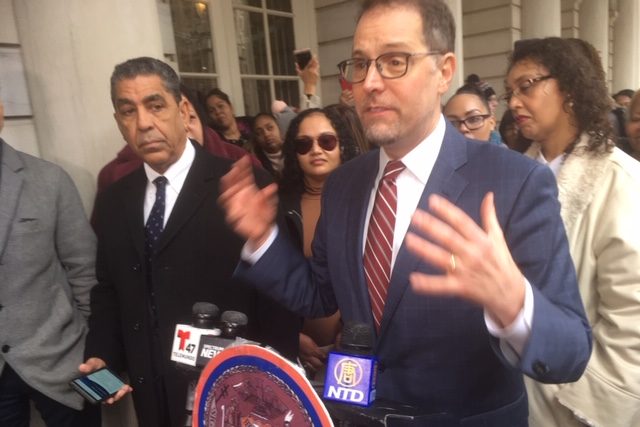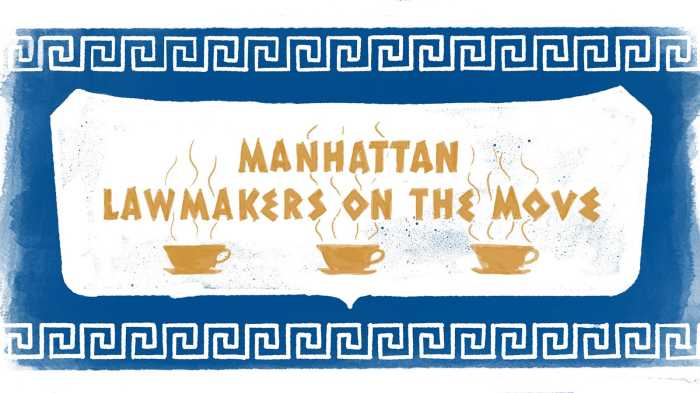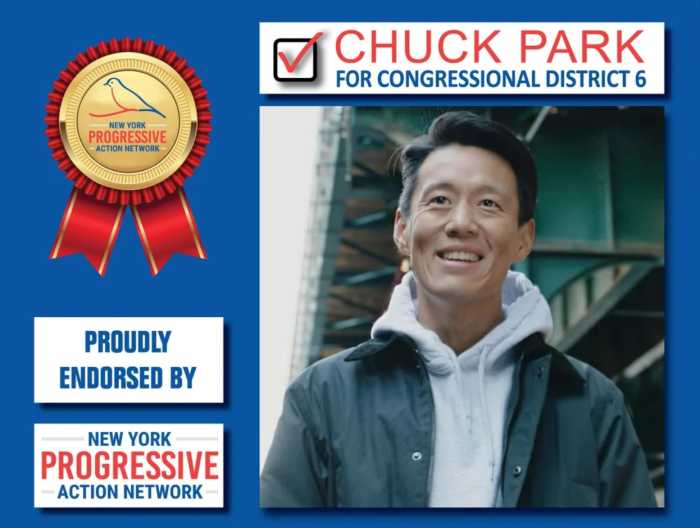Council Member Diana Ayala (D-East Harlem, Mott Haven) has relied on childcare providers for much of her life. As a young mother, Ayala had the privilege of staying at home with her first two children until they were old enough for school. By the time she had her third child, however, she had to start working – and somebody had to look after her children while she was at work.
“I needed to rely on good, quality daycare services for my children,” said Ayala. “And if it wasn’t for a woman on 106th Street – who is no longer with us – I wouldn’t have been able to get my job done. It is women like these, women of color, who sacrifice every single day for us. We cannot allow this industry to go extinct.”
Ayala was just one of the electeds who joined Representative Adriano Espaillat (D-Washington Heights, Sugar Hill) yesterday for a press conference on New York’s childcare providers.
The conference took place yesterday at 10 a.m. on the steps of City Hall. Espaillat and Ayala were joined by Council Members Mark Levine (D-Manhattan Valley, Manhattanville) and Ydanis Rodriguez (D-Washington Heights, Inwood) and Assemblymember Dan Quart (D-Murray Hill, Lenox Hill), along with a plethora of childcare providers and activists.
As Espaillat explained, independent childcare providers have to bear a far greater burden than most people think. On a professional level, they’re more than just educators; they’re also nurses, social workers and businesspeople.
“They’re not only teachers who teach young children the colors, how to go potty and the alphabet,” said Espaillat. “They’re also nurses. When the children get sick, they have to take care of them. In addition, they’re also social workers, because they have to deal with moms and dads and become intricate part of their families. And finally, they’re businesswomen, because this is what they do for a living. They have to adapt their apartment to meet city codes; they have to be there for families; very often, they have to dig into their own pockets to purchase food and crayons and baby aspirins.”
Most importantly, they play a vital role in New York’s economy. Without their services, hundreds of thousands of parents would lose the opportunity to work full time. So why, he asked, are they not receiving the recognition they deserve?
“This industry has seen great challenges and very little help from government,” said Espaillat. “As a result, every weekend more and more of them are going out of business.”
Childcare provider Gladys Jones vouched for what Espaillat said, claiming that the private childcare industry is facing a “crisis”. Childcare providers, she said, are not receiving enough support from their state and local government to sustain their businesses.
“The New York State childcare system is in crisis,” said Jones. “More parents who want and need to work have dropped out of the workforce. The amount the state reimburses for providing care to children who qualify for subsidy is too low to retain a quality staff in a quality environment. We’re paid inadequate benefits and too few paths to advancement.”
According to Ydanis Rodriguez, the issue both reflects and reinforces racial and economic inequality. Low-income families of color are disproportionately likely to rely on independent childcare providers – so they have a lot more at stake.
“Let’s call it what it is,” said Rodriguez. “This is about equity. We’re talking about providing black and Latino families the same early childhood education that the middle class and upper class receive in the city of New York.”

At the conclusion of the conference, Mark Levine gave a direct message to all of New York’s childcare providers, assuring them that they have the right to demand adequate compensation for the essential work they do.
“Families could not manage their careers and their lives, without the services that you provide,” said Levine. “We know you’re not in this to get rich. You have the right to demand decent income from this work.”








